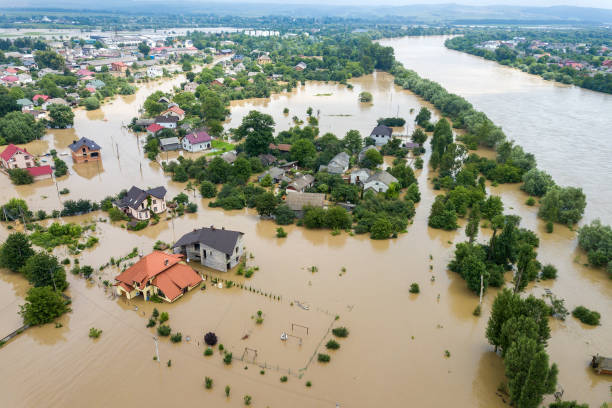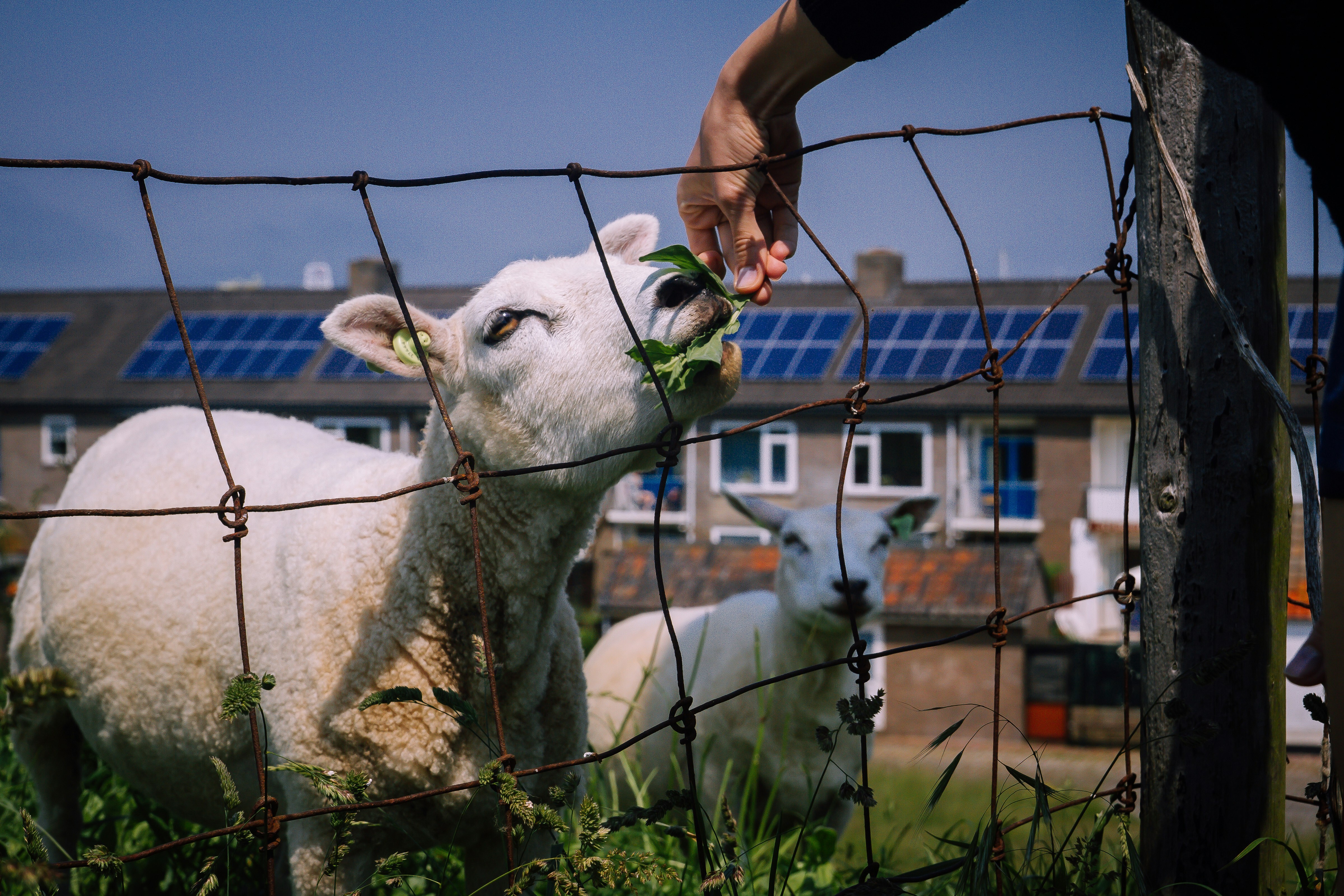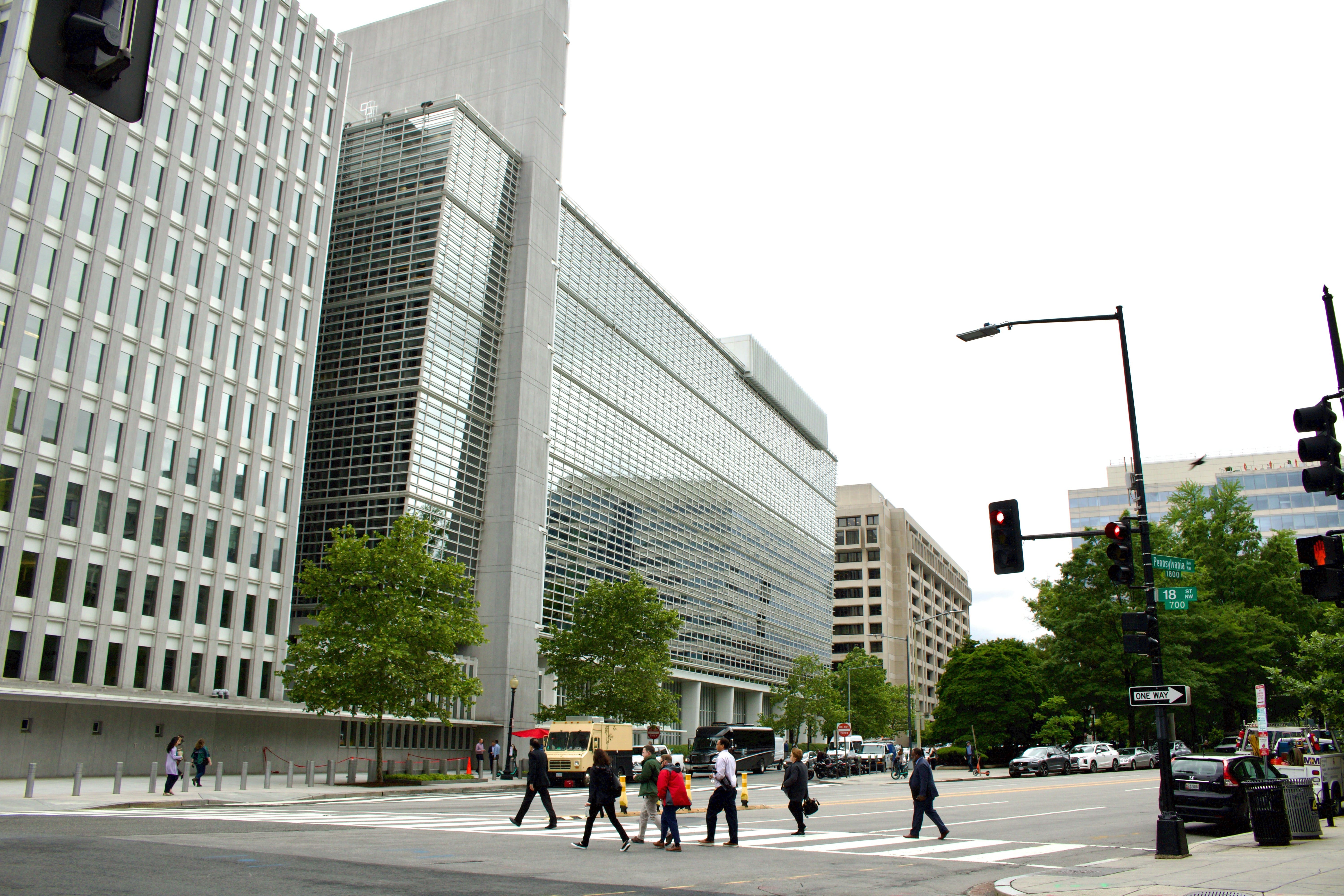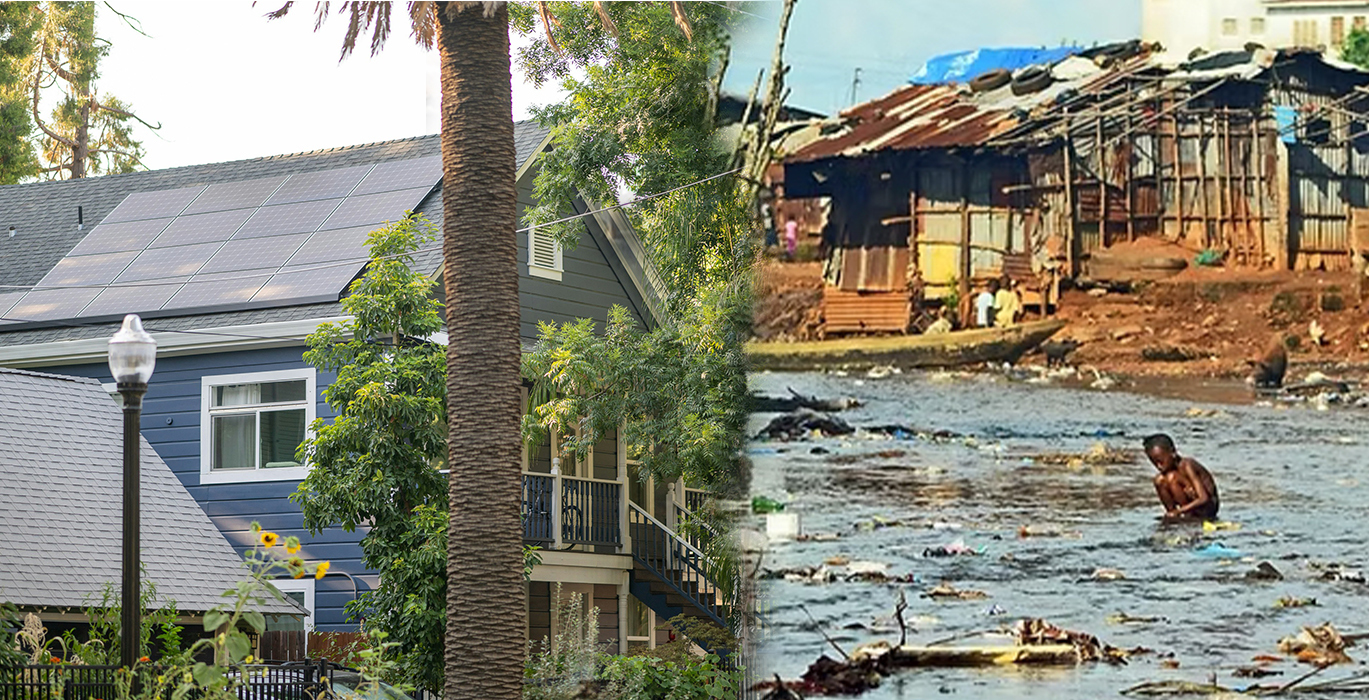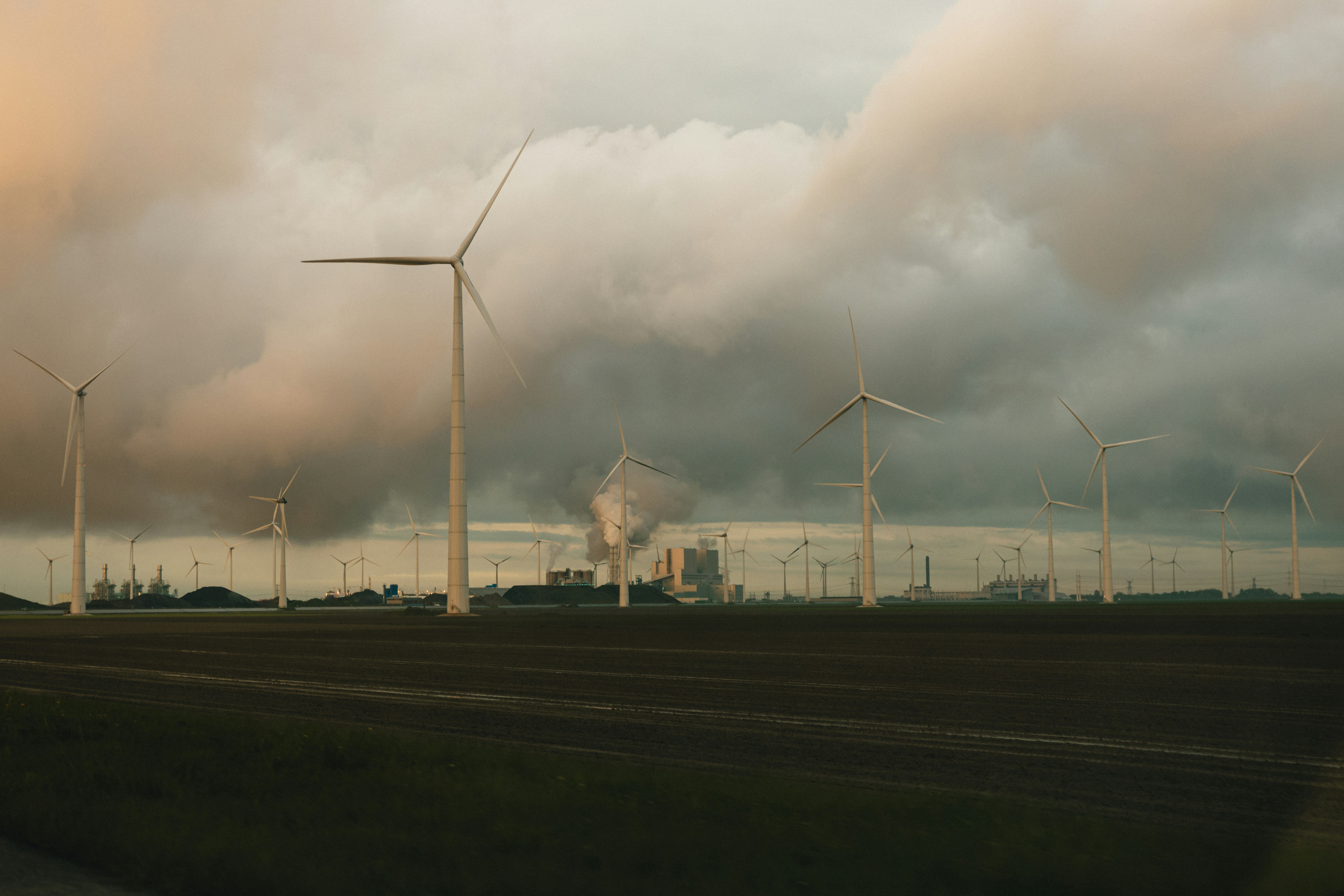As global temperatures rise, Nigeria's economy, Africa's largest by population, is feeling the heat.
A study warns that climate change, driven by temperature surges and erratic rainfall, could be silently eroding Nigeria's long-term growth potential.
From farms to factories, the evidence shows one thing clearly - when the climate shifts, economic progress slows.
When Heat Hurts Growth, Not Harvest
Nigeria's climate is no longer just about weather; it is about wealth. A groundbreaking study by the University of Johannesburg reveals a worrying trend: while short-term economic activity may benefit from occasional climate shocks, the long-run impact of rising temperatures and irregular rainfall is deeply destructive.
The research, spanning 61 years of data from 1961 to 2022, finds that a 1% increase in average temperature corresponds to a 0.67% drop in economic growth.
Called "a long-run drag effect", a slow but sure weakening of Nigeria's productivity, especially in agriculture and labour-intensive industries.
Nigeria's economic future is being shaped not just by policy, but by precipitation and heat. Unless we start to adapt and scale up climate-smart strategies, the country could see its growth potential melt under rising temperatures.
When the Climate Becomes the Economy
The numbers are unsettling. Floods in 2022 displaced 2.5 million Nigerians, destroyed 200,000 homes, and caused over $758 million in annual economic losses in the Niger Delta alone.
Agriculture, which is responsible for 25.9% of Nigeria's GDP, is at the frontline of this climate crisis.
Researchers found that increased heat and inconsistent rainfall have lowered farm yields, eroded labour productivity, and damaged infrastructure. In one striking finding, the study reveals that between 1988 and 1998, a 7.31% rise in temperature led to a 23.3% decline in economic growth.
"Climate change isn't a distant future, it is a present shock,"
says lead researcher Dr Sodiq Arogundade. "The economy is already paying the price of heat."
The Data Behind the Decline
In the short run, the study observed slight positive effects from temperature increases, possibly due to "reconstruction booms" after extreme weather events or temporary demand for cooling and irrigation equipment.
But over time, these gains are wiped out as agriculture, infrastructure, and human productivity suffer from chronic exposure to heat stress and flooding.
| Key Indicator (1961–2022) | Mean Value | Impact on Growth |
|---|---|---|
| Average Temperature (°C) | 24.79 | −0.67% GDP per +1% rise |
| Precipitation (mm) | 1,173 | −0.23% GDP per +1% rise |
| Real GDP per Capita (USD) | 1,874.39 | Declining trend since 2014 |
| Labour Force (People) | 46.3 million | +0.39% contribution |
| Financial Development (CPS % of GDP) | 8.65% | +0.10% contribution |
The model shows long-run causality runs one way, from climate change to economic growth, meaning Nigeria's economy responds to climate shocks, but not the other way around. In essence, climate dictates growth.
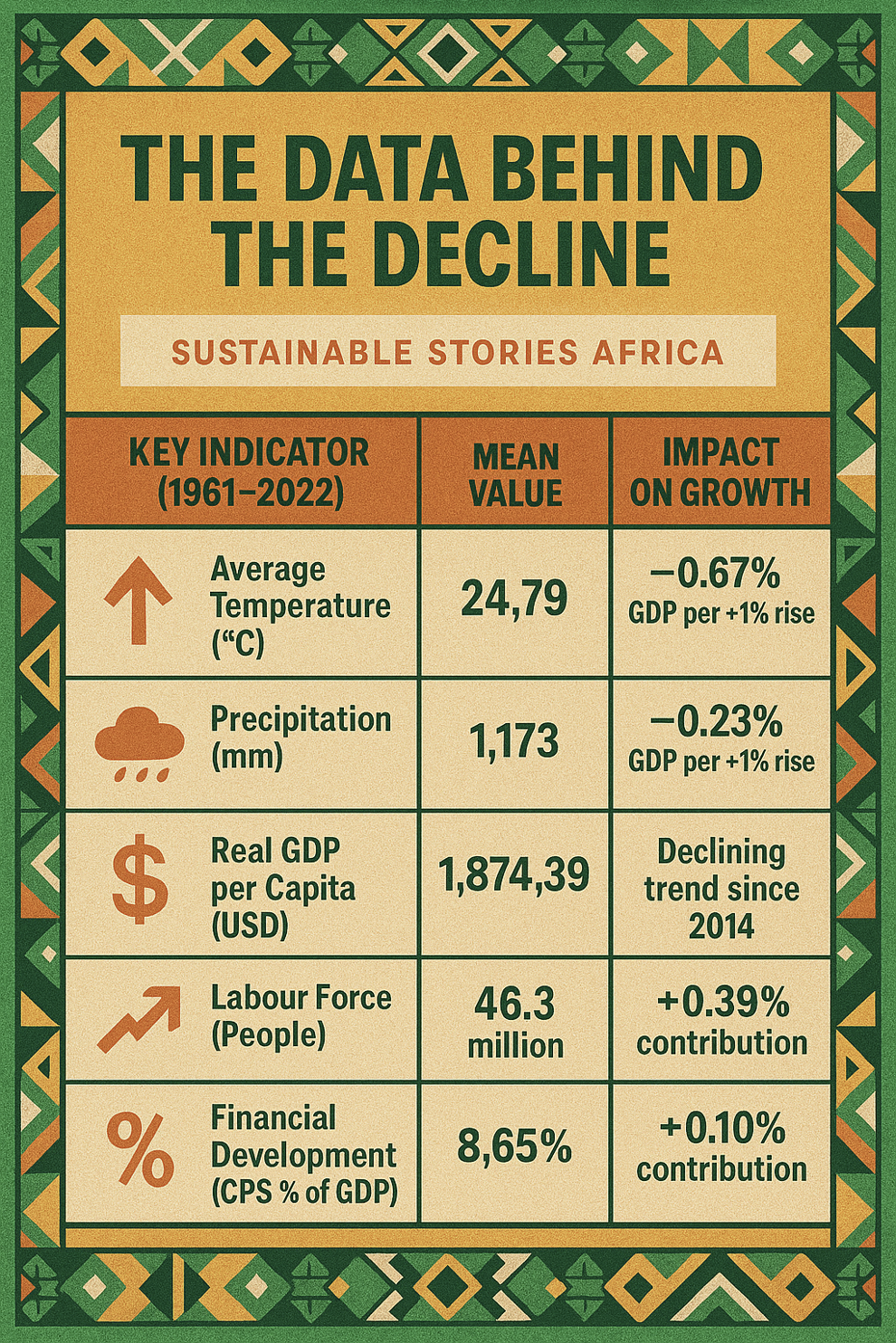
What a Cooler Future Could Deliver
The study doesn't just diagnose the problem. It shares insights into the potential strategy for management. If Nigeria can implement climate-smart policies, strengthen financial mechanisms like green bonds, and promote renewable energy, it could reverse much of this damage.
Projected Benefits of Climate Adaptation (by 2030)
| Policy Area | Potential GDP Impact | Examples |
|---|---|---|
| Renewable Energy (solar, wind) | +2.4% GDP growth | Decentralised solar grids in Northern states |
| Green Finance Incentives | +1.5% GDP growth | Climate-focused microfinance and green bonds |
| Sustainable Agriculture | +1.2% GDP growth | Climate-resilient crops, irrigation infrastructure |
| Climate Education & Awareness | +0.5% GDP growth | Curriculum integration, national campaigns |
Beyond economics, adaptation can reduce health crises, prevent migration due to land loss, and restore public trust in governance through visible, sustainable progress.
"If climate change can cut growth by 0.6%, green action can boost it by 3%," says Dr Arogundade. "It's not just an environmental issue; it is an investment decision."
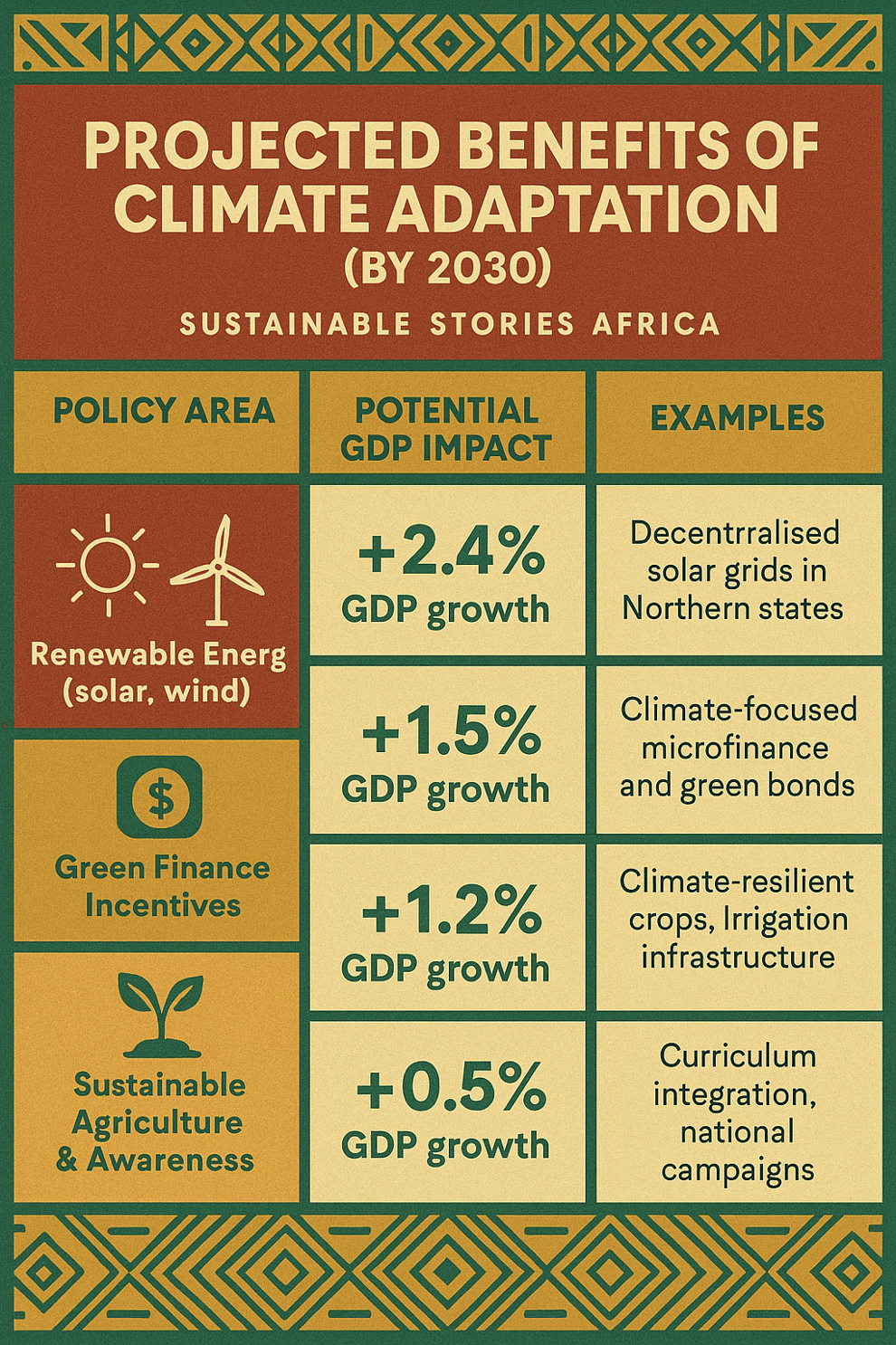
Building Nigeria's Climate-Resilient Economy
The policy prescriptions are clear. Nigeria needs a multi-sectoral climate growth plan, one that blends financial innovation, community participation, and long-term resilience.
- Invest in renewable energy: Provide fiscal incentives for solar, wind, and hydropower industries.
- Promote green finance: Scale up green bonds and climate-linked insurance for businesses and farmers.
- Educate and engage: Introduce climate literacy into schools and vocational training.
- Support adaptation research: Build data systems to monitor environmental and economic interactions in real time.
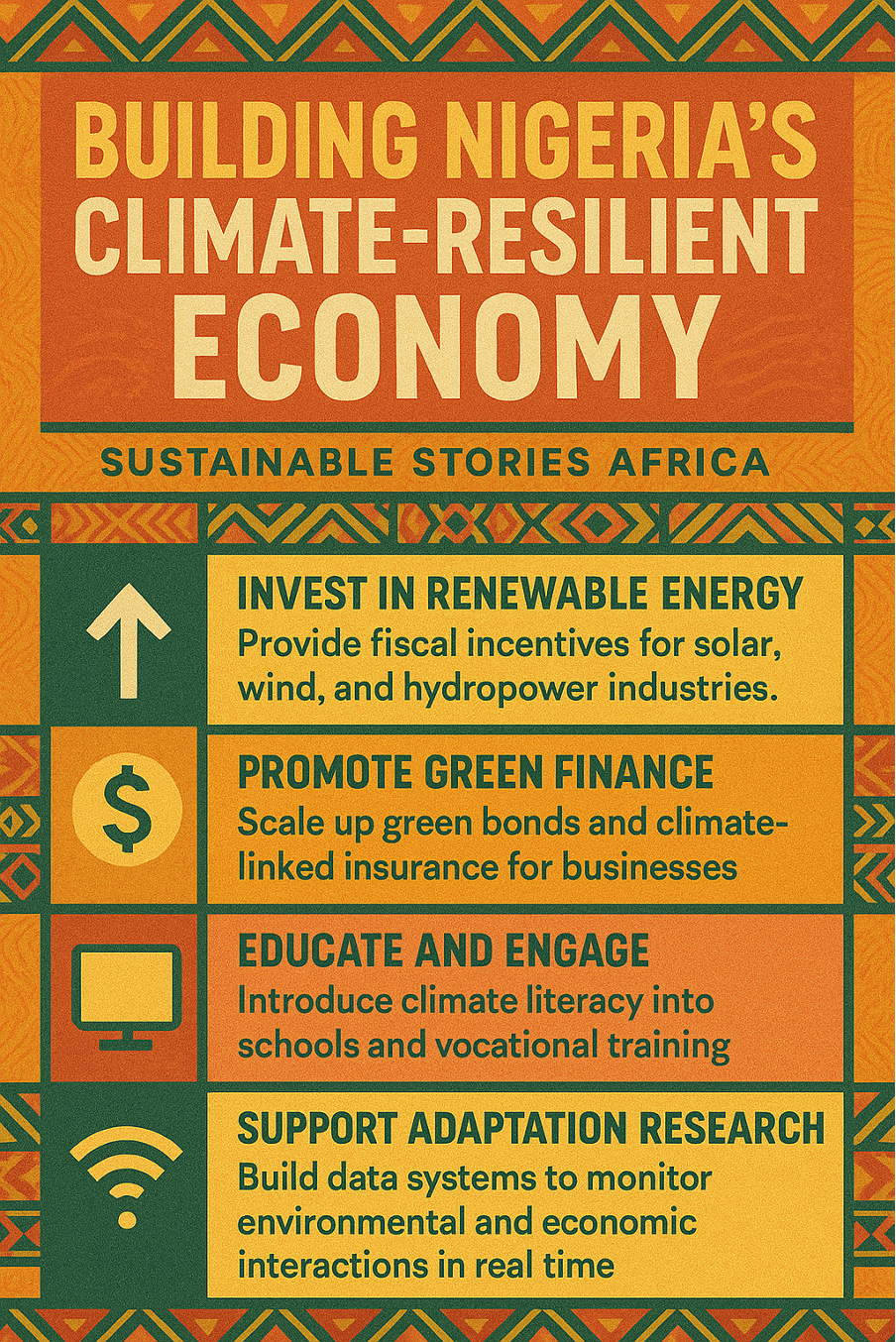
By integrating these into fiscal planning, Nigeria could transform its climate vulnerability into an opportunity for sustainable transformation.
Path Forward – Climate Now Shapes Nigeria's Economic Destiny
Nigeria's growth story now depends as much on climate resilience as on macroeconomic reform. The study's findings call for urgent investment in renewable energy, green finance, and sustainable agriculture to protect long-term productivity.
The future of Africa's largest economy will hinge not on how much oil it pumps—but on how well it adapts to a warming world. For Nigeria, the climate isn't just an environmental challenge; it's an economic destiny.
Key Insight: Every 1% rise in average temperature reduces Nigeria's GDP growth by 0.67% over time.

